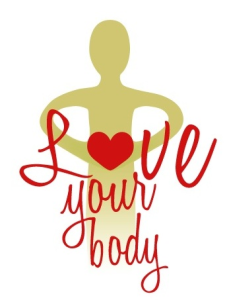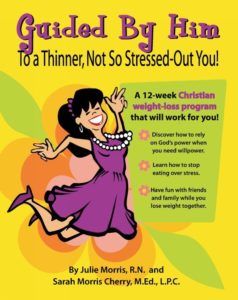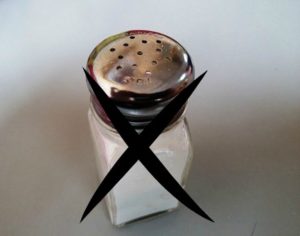
Love Your Body Like God Loves It
Since Christmas was on a Sunday, many of you have today off work. I’m actually enjoying an extra day with family, as I will be next Monday, so there won’t be a Monday Morning Blog. I’ll be back on January 9 to start the New Year with you.
[Tweet ” you might be contemplating starting 2017 with some resolutions or goals regarding your health. “]
Today, you might be contemplating starting 2017 with some resolutions or goals regarding your health. I hope so because as your health goes, so goes many of your activities and your quality of life. Good health doesn’t just happen. It takes diligence and work, but the rewards are life changing and life giving. Over the past years of Love Your Body Mondays, I’ve given you lots of ideas for improving your eating and exercise habits. But reading what to do and doing them, as you know, are two different things.
I thought today I would give you some of my ideas on goal setting, and then you can pray about how to apply them to your life. Maybe it won’t be in the area of diet or health . . . maybe there’s some other area of life you would like to improve. Each anniversary my husband and I write goals for the upcoming year and review how we did with the past year’s goals. It has helped us maintain, spiritual, personal, and, marital growth in our relationship.
Here are some tips for any kind of goal setting . . .
Set Realistic Goals
Twenty-four years ago, my husband’s doctor wanted him to weigh 210 pounds on his 6 ft. 4 in. body. When we set our goals this anniversary, we talked about this goal since he hasn’t weighed 210 for many years, but he has been able to achieve between 215 and 220. I think 215 is healthy for him, he’s happy with the range, so we’ll probably settle with somewhere in the middle.
I like to read the Bible in a year, but I need a plan to keep me on track. I’ve tried various ones like YouVersion.com and find what I’ve enjoyed the last few years is Walk Thru the Bible Daily Walk. I also enjoy reading a different Bible translation each year.
Set Measurable Goals
We have scales in our bathroom and I weigh myself every morning. For me, it’s important to know if I’m going up a few pounds because then I know I need to cut back right away since I don’t lose weight easily. My husband likes to get on “occasionally,” but he does weigh himself so he’ll know if he’s staying between 215 and 220.
Every month I receive my Daily Walk magazine with the next month’s reading schedule and devotional so I can keep on track reading. But this year I was writing a new book with a short deadline and I was only able to read half the Bible. So I’ll read the second half in 2017. Sometimes you need to adjust your goal and give yourself grace, but don’t give up entirely.
Set Maintainable Goals
I prepare our meals so I know what my husband is eating, but if he wants to stay on the lower weight range, he needs to add exercise, also good for his heart. So we’ve talked about him joining the gym again this year. That’s something he has agreed to do, but he has to go to the gym after he joins it. Are you laughing because so many people join a gym, pay the money, and stop going. Setting a goal is only as good as your follow through.
[Tweet “Setting a goal is only as good as your follow through.”]
Here’s my pet complaint about goal setting, so I might as well share it with you now. I don’t like to use or hear the work “try” because to me it gives the person who is using it an escape clause.
The Bible says: “All you need to say is simply ‘Yes’ or ‘No’; anything beyond this comes from the evil one.” Matt. 5:37
Let me give you a couple of examples of why try doesn’t convey commitment to me:
- Would you marry a spouse who says they will “try” to keep his or her marriage vows?
- Would you get on a plane with a pilot who says he or she will “try” to get you to your destination?
- Would you go into surgery with a surgeon who says he or she will “try” to pull you through alive?
- Would you get in a car when the mechanic said he “tried” to fix the brakes?
[Tweet “If you don’t think you’re going to do a goal, then set something more doable.”]
Ok, I think you get my point. Don’t set goals you’re going to “try” to maintain. If you don’t think you’re going to do them, then set something more doable. Now I know some of you are thinking well isn’t that setting the bar too low? Would you rather get over the bar and feel successful or give up because you keep coming in under the too overwhelming bar? Once you know you can do it, then by all means, set the next goal a little higher and go for it!
Set Purposeful Goals
[Tweet “If you don’t think you’re going to do them, then set something more doable.”]
No one really follows through on something they don’t see as having value or purpose. So before you set any goals, determine why you’re setting them.
Why do you want to lose weight?
Why do you want to exercise more?
Why do you want to eat healthier and what would that look like?
Why do you want to take better care of your skin?
Why do you want to drink more water and less soft drinks or alcohol or coffee?
Why do you want to read your Bible more and spend less time in front of the TV or computer?
Why do you want to spend more time with your children or spouse?
Why do you want to pray more?
[Tweet “Nothing will happen for the long term until you answer why doing it is meaningful to you. “]
Nothing will happen for the long term until you can answer why doing it is meaningful to you. Not to your doctor, or your spouse, or even your kids . . . they will all benefit and be the receptor of the blessings of your goals . . . but you must determine the importance if you’re going to keep at it even when it gets hard.
I pray that whatever God puts on your heart for 2017, He will plant it so deep that nothing can uproot it until He has finished the work He planned in and for you.
Happy Blessed New Year all my friends and family and I’ll see you again on January 9.
And I am certain that God, who began the good work within you, will continue his work until it is finally finished on the day when Christ Jesus returns. Philippians 1:6 NLT
If you receive this blog by email, comment here.




 Increase potassium and Vitamin D: Here is a good article on nine foods that can reduce high blood pressure and increase potassium and Vitamin D in your diet:
Increase potassium and Vitamin D: Here is a good article on nine foods that can reduce high blood pressure and increase potassium and Vitamin D in your diet: 








